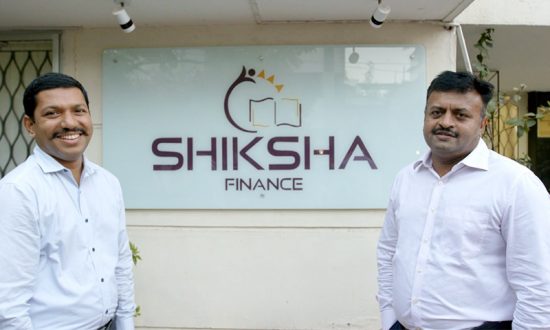Mr. V.L. Ramakrishnan and Mr. Jacob Abraham are co-founders of Shiksha Finance, an education finance company that provides loans to affordable private schools and low-income students in India.
After a three decade long wait, the National Education Policy (NEP) 2020 was a welcome change for the Indian education sector. The NEP is a set of policies formulated by the Government of India to guide the development of the education sector and promote quality education for its citizens. The first education policy was introduced in 1968 and a second was formulated in 1986, which was subsequently revised in 1992. The 2020 policies aim to transform education in the country and equip students with the right tools to enter the dynamic and technologically advanced workplace. These policies are India’s step towards the United Nations Sustainable Goal 4: Quality Education.
There is no better investment towards a society’s future than the high-quality education of the youth. Rightly so, the new policy commits to significantly raising educational investment. The Centre and the States will work together to increase the public investment in the education sector to reach 6% of GDP from around 4% of GDP currently.
Financial support will be provided to various critical components of education and decent service conditions at schools will be ensured so that teachers and students are comfortable and inspired to teach and learn in their schools. Adequate and safe infrastructure, computing devices, internet, libraries, and sports and recreational resources will be provided to all schools to ensure that teachers and students have a safe, inclusive, and effective learning environment.
Inclusion for children of all genders and for children with disabilities will be a priority. NEP 2020 has introduced “Gender Inclusion Fund” and “Special Education Zones” to build the nation’s capacity to provide equitable quality education for all girls as well as transgender students, differently abled students and students from socio-economic disadvantaged groups. The Fund will help improve access to sanitation and toilets, bicycles and conditional cash transfers. It will also provide for special hostels in dedicated regions, bridge courses, and financial assistance through fee waivers and scholarships among others.
There is an impending need to improve Gross Enrolment Ratio (GER). The GER is a measure used in the education sector to determine the number of students enrolled in school at several different grade levels Many states and districts of India, like Bihar (13.6%), West Bengal (19.3%), and Jharkhand (19.1%), have a GER below the national average of 25%. The Higher Education Finance Corporation can grant long term loans for this purpose with a goal to bring the GER of these districts and states to the national average of in 10 years. The NEP 2020 focuses on increasing the national GER to 50% by 2023.
The Government’s National Scholarship Portal (NSP) can be modelled as a Public-Private-Partnership, with a private-sector board to oversee the organisation. 50% of the funding can be raised from citizens all over India on a 100% tax exemption, with the government putting in 50% of the total.
Innovative devices such as social impact bonds present an interesting alternative by which purpose-driven investors can focus on impact delivery, even if it generates lower returns than a purely commercial investment would.
As education shifts to digital mediums, schools, colleges and institutes will increasingly require financing to improve their digital infrastructure. In recent years, many NBFCs and private financing companies apart from banks have emerged to offer fund Infrastructure loans for schools, colleges and institutes providing vocational and professional courses.
The cost of higher education is increasing gradually, and aspirants search for good options to avail education loans. These students serve as an attractive target market for financial services providers. Financial service companies have the opportunity to collaborate with the National Scholarship Portal to support students receiving scholarships. These companies can also partner with educational institutions to offer loans and financial support to the students enrolled such institutions. Increased focus on vocational education in NEP 2020 would also result in the need for financing such vocational courses. The increased technology adoption that the NEP 2020 would bring about in areas of online learning, e-program delivery, teacher training or e-assessments will serve as a challenge for low income students in terms of affordability, access to devices and internet. Such students would require financing, not only for their tuition fees but also for the equipment and supplies required for their education.
In a country like ours where the scale of requirements is this large, such partnerships can support purpose-driven institutions and help transform the education system.
About V.L. Ramakrishnan (Ramki), Founder and CEO, Shiksha Finance
 A Chartered Accountant, Ramakrishnan (Ramki) is the CEO of Shiksha and oversees the broad strategy and overall business. Before Shiksha, Ramki was the co-founder and the CFO of a Suryodaya Microfinance (a leading microfinance institution that transformed into a small finance bank). Ramki has extensive experience on the ground and has over 25 years of experience in the financial services space with extensive experience in retail lending at organizations such as Development Credit Bank, GE Capital and Cholamandalam Finance.
A Chartered Accountant, Ramakrishnan (Ramki) is the CEO of Shiksha and oversees the broad strategy and overall business. Before Shiksha, Ramki was the co-founder and the CFO of a Suryodaya Microfinance (a leading microfinance institution that transformed into a small finance bank). Ramki has extensive experience on the ground and has over 25 years of experience in the financial services space with extensive experience in retail lending at organizations such as Development Credit Bank, GE Capital and Cholamandalam Finance.
About Jacob Abraham, Founder and COO, Shiksha Finance
 Jacob is the Chief Operating Officer at Shiksha and oversees finance, operations and IT. A Chartered Accountant, Jacob has over 18 years of experience across finance and insurance companies, with significant expertise in finance, strategy, credit and underwriting. He has worked with Royal Sundaram Insurance, Chola Insurance, Cholamandalam Finance and PwC.
Jacob is the Chief Operating Officer at Shiksha and oversees finance, operations and IT. A Chartered Accountant, Jacob has over 18 years of experience across finance and insurance companies, with significant expertise in finance, strategy, credit and underwriting. He has worked with Royal Sundaram Insurance, Chola Insurance, Cholamandalam Finance and PwC.




